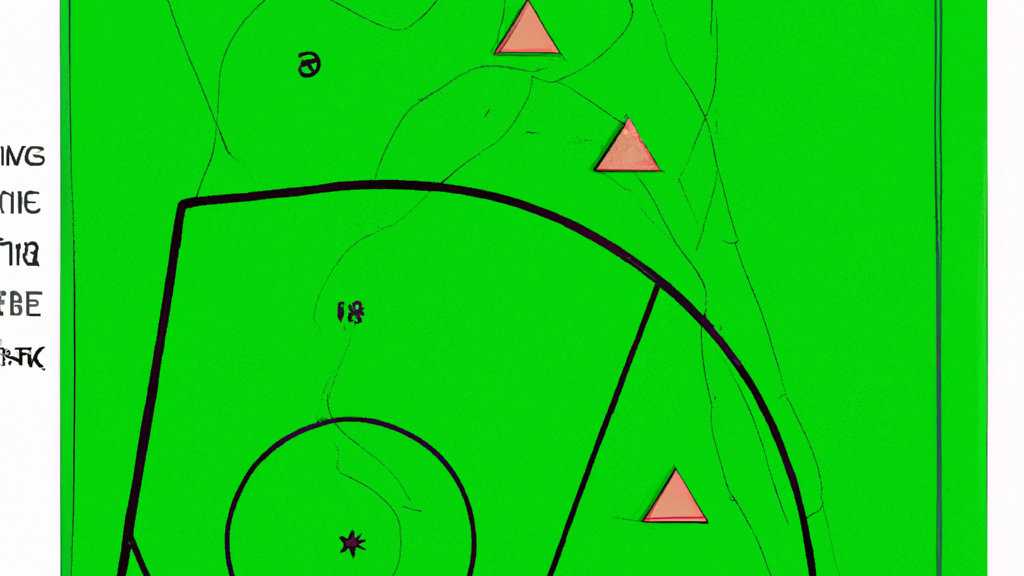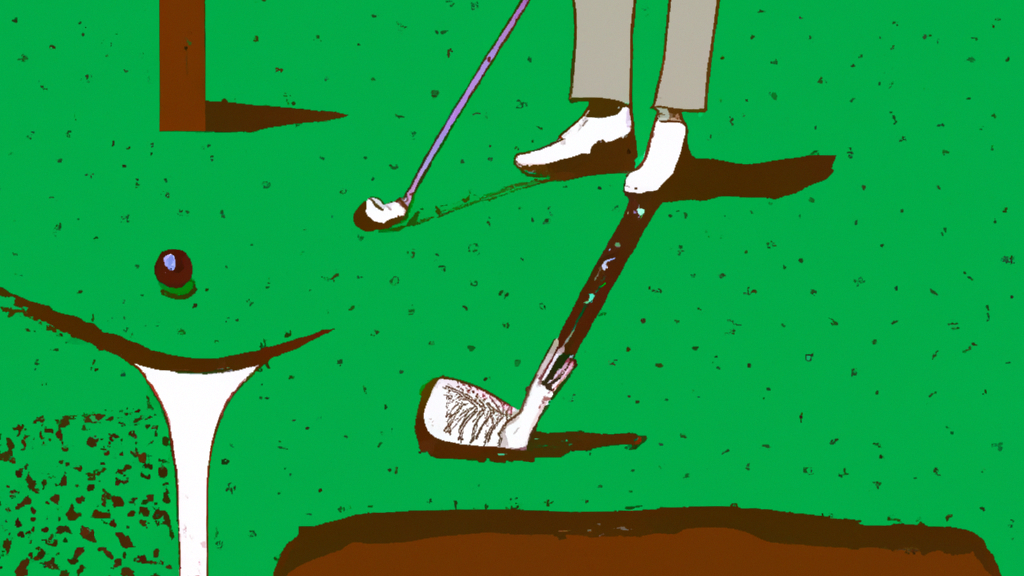THE PSYCHOLOGY OF GOLF: HOW YOUR MINDSET AFFECTS YOUR GAME
Golf is a sport that requires both physical and mental prowess. While many golfers focus on perfecting their swing and technique, they often overlook the importance of their mindset. The psychology of golf is a fascinating topic that explores how your thoughts, emotions, and beliefs can affect your game. In this article, we will delve into the ways in which your mindset can impact your performance on the golf course. From the power of positive thinking to the detrimental effects of negative self-talk, we will explore the various psychological factors that can make or break your game.
Whether you’re a seasoned pro or a beginner, understanding the psychology of golf can help you improve your skills and achieve your goals on the course. So, grab your clubs and let’s dive into the fascinating world of golf psychology.

THE PSYCHOLOGY OF GOLF: HOW YOUR MINDSET AFFECTS YOUR GAME
Golf is a sport that requires a lot of skill, patience, and mental toughness. It is not just about hitting the ball as far as possible, but also about strategy, focus, and concentration. The psychology of golf is an important aspect of the game that is often overlooked. Your mindset can have a significant impact on your performance on the course. In this article, we will explore the psychology of golf and how your mindset affects your game. The Importance of Mindset in Golf Golf is a mental game as much as it is a physical one.Your mindset can make or break your game. A positive mindset can help you stay focused, confident, and motivated, while a negative mindset can lead to frustration, anxiety, and self-doubt. Golfers who have a positive mindset are more likely to perform well under pressure and bounce back from setbacks. One of the most important aspects of mindset in golf is confidence. Confidence is the belief in your ability to perform well. Golfers who lack confidence often struggle with their game, as they are more likely to make mistakes and become frustrated.
On the other hand, golfers who are confident in their abilities are more likely to take risks, make better decisions, and perform well under pressure. Another important aspect of mindset in golf is focus. Golf requires a high level of concentration and focus. Golfers who are easily distracted or lose focus are more likely to make mistakes and miss shots. Golfers who are able to maintain their focus throughout the round are more likely to perform well and achieve their goals. The Role of Emotions in Golf Emotions play a significant role in golf.
Golfers who are able to manage their emotions effectively are more likely to perform well under pressure. Golfers who become too emotional, whether it be anger, frustration, or anxiety, are more likely to make mistakes and lose focus. One of the most common emotions that golfers experience is frustration. Frustration can arise from a variety of factors, such as missed shots, bad breaks, or slow play. Golfers who become frustrated often struggle to regain their focus and confidence, which can lead to a downward spiral in their game. Anxiety is another emotion that can impact a golfer’s performance.
Golfers who experience anxiety may become nervous or tense, which can lead to a loss of focus and confidence. Anxiety can also lead to physical symptoms, such as sweating, shaking, or an increased heart rate, which can further impact a golfer’s performance. The Importance of Self-Talk in Golf Self-talk is the internal dialogue that we have with ourselves. It can have a significant impact on our mindset and performance in golf. Golfers who engage in positive self-talk are more likely to have a positive mindset and perform well on the course.
Positive self-talk involves using positive affirmations and statements to reinforce confidence and focus. For example, a golfer may say to themselves, “I am a great putter” or “I can hit this shot.” These statements can help to build confidence and reinforce positive beliefs about one’s abilities. Negative self-talk, on the other hand, can have a detrimental effect on a golfer’s mindset and performance. Negative self-talk involves using negative statements or beliefs about oneself, such as “I always miss this shot” or “I’m not good enough.”
These statements can lead to a loss of confidence and focus, which can impact a golfer’s performance on the course. The Importance of Visualization in Golf Visualization is a technique that involves creating mental images of desired outcomes. It can be a powerful tool in golf, as it can help golfers to visualize successful shots and build confidence. Visualization involves imagining oneself hitting a successful shot, such as a long drive or a perfect putt. By visualizing these shots, golfers can build confidence and reinforce positive beliefs about their abilities.
Visualization can also help golfers to stay focused and maintain their concentration throughout the round. The Importance of Goal-Setting in Golf Goal-setting is an important aspect of mindset in golf. Golfers who set clear, achievable goals are more likely to have a positive mindset and perform well on the course. Goals can help golfers to stay motivated, focused, and confident throughout the round. When setting goals in golf, it is important to set both short-term and long-term goals.
Short-term goals may include hitting a certain number of fairways or greens in regulation, while long-term goals may include improving one’s overall score or handicap. Conclusion The psychology of golf is an important aspect of the game that is often overlooked. Your mindset can have a significant impact on your performance on the course. Golfers who have a positive mindset are more likely to perform well under pressure and bounce back from setbacks. Confidence, focus, emotions, self-talk, visualization, and goal-setting are all important aspects of mindset in golf.
By understanding and improving your mindset, you can improve your performance on the course and enjoy the game of golf to its fullest.

- Mental Attitude in Golf: It Matters More than you Think – The Left Rough
The reason is that the human mind is programmed for negativity. Psychologists have coined the term, negativity bias and it has a huge impact on your behavior in … - Your Mindset for Playing Golf in the Wind
There is one uncontrollable factor that distracts or hurts golfers’ mental game… wind! Wind gusts and swirling winds affect both the flight of the ball and the … - Sitemap | Sports Psychology for Golfers
Improve your mental game with golf psychology coach and Dr. Patrick Cohn, mental coach to professional and amateur golfers. - Dr. Bob Rotella: Inside the Golfer’s Mind | Instruction | Golf Digest
Jun 5, 2008 … Golf is a game of confidence and competence. I am not about to tell anyone that a player who lacks physical skills can transform overnight … - Changing Your Perspective in Golf | Sports Psychology for Golfers
A positive perspective affects your thoughts differently. … You are golfing more on autopilot, unaware of the thoughts flowing through your mind. - Changing Your Mindset in Soccer | Soccer Psychology Tips
Jun 2, 2017 … A positive mindset not only affects how you approach games, but also how you approach practices and training sessions. - Golf Psychology, The Key to Your Consistency and Performance
May 26, 2017 … Studying and improving the mental game allows a golfer to battle through stress, avoid yips, and improve faster. Why aren’t you more consistent … - Golf Anxiety: Dealing with Stress while Improving your Game – The …
Mar 16, 2020 … What her research showed was your mindset, whether you thought stress was good or bad for you, can impact the chemicals your body and brain … - 5 Golf Psychology Tips To Help You Play Better | Golf Monthly
Aug 4, 2022 … Most of us mere mortals can’t afford such a luxury as a dedicated golfing mind-doctor, but there are some key psychological pointers that … - Books – Golf is a Mind Game
Golf Psychology Book. In this book there are practical exercises, psychological ideas and interesting stories … Understand how anxiety affects your game
Fascinating facts about The Psychology of Golf: How Your Mindset Affects Your Game you never knew
- Golf is one of the oldest sports in the world, with evidence of a similar game being played in ancient Rome.
- The first recorded game of golf was played in Scotland in 1457.
- The term “caddie” comes from the French word “cadet,” meaning younger son or assistant.
- Professional golfer Tiger Woods has won 82 PGA Tour events, tying him for most all-time with Sam Snead.
- Augusta National Golf Club, home to The Masters tournament, was originally an indigo plantation before it became a golf course.
- In 2019, Brooks Koepka became just the fourth player ever to win back-to-back U.S Open titles and back-to-back PGA Championship titles





